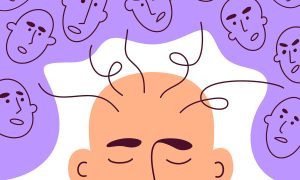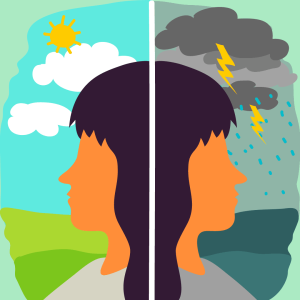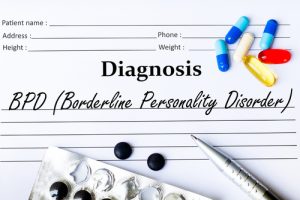Contents
- 1 What Are Personality Disorders?
- 2 Types Of Personality Disorder
- 3 Symptoms of Personality Disorders
- 4 Causes Of Personality Disorder
- 5 Coping With A Loved One Who Has A Personality Disorder
- 6 Diagnosis Of Personality Disorder
- 7 Treatment for Personality Disorders
- 8 What if You Don’t Get Treatment?
- 9 How To Get Help for Personality Disorders?
- 10 Coping with a Loved One Who Has a Personality Disorder
- 11 Self Care Tips For Personality Disorder
- 12 Conclusion
- 13 A Word From Therapy Mantra
What Are Personality Disorders?

Personality disorders are mental health conditions that affect the way a person thinks, feels, and behaves. They can cause problems in relationships, work, and school. There are many different types of personality disorders, and each one affects people in different ways.
Personality disorders are mental conditions that can cause people to act in socially distressing or unusual ways. Personality disorders are typically diagnosed during adolescence or early adulthood. There are different types of personality disorders, and each one affects people in different ways. Some common symptoms of personality disorder include having a hard time controlling your temper and coping with difficult situations. Treatment for personality disorder can involve talk therapy and medication designed to treat similar symptoms other mental health conditions like depression
Types Of Personality Disorder
There are many different types of personality disorders, and each one affects people in different ways. Some of the most common types of personality disorder include:
• Borderline personality disorder: People with a borderline personality disorder often have a hard time regulating their emotions. They may feel like they’re on an emotional roller coaster, and they can be very impulsive.
• Antisocial personality disorder: People with an antisocial personality disorder often have a disregard for laws and social norms. They may be aggressive and cruel, and they often have no empathy for other people.
• Schizoid personality disorder: People with schizoid personality disorder tend to be detached from social interactions and prefer to be alone. They may have trouble feeling emotions, and they generally don’t like to communicate much at all.
• Histrionic personality disorder: People with histrionic personality disorder are often dramatic and greatly influenced by the opinions of others. They tend to be uncomfortable when they’re not the center of attention.
Symptoms of Personality Disorders
 There are many different symptoms of personality disorders, and each one can affect people in different ways. Some common symptoms include:
There are many different symptoms of personality disorders, and each one can affect people in different ways. Some common symptoms include:
- Having a hard time controlling emotions or impulses
- Feeling like you’re always on edge or stressed out
- Having trouble relating to other people or forming close relationships
- Feeling like you’re stuck in the same patterns of behavior even though you know they’re not good for you
- Have a hard time controlling your temper
Causes Of Personality Disorder
There is no one cause of personality disorder. Rather, it is thought to be the result of a combination of genetic and environmental factors. Some people may be more likely to develop a personality disorder if they have a family history of the condition, and certain life experiences can also contribute to its development. For example, someone who has been abused or neglected may be more likely to develop a borderline personality disorder.
Coping With A Loved One Who Has A Personality Disorder
Having a family member with a personality disorder is difficult for everyone involved. Because these conditions are so complex, there’s no single way to cope with them successfully. However, some common tips include finding support from others who have gone through something similar or learning about the condition for yourself in order to better understand what your loved one is going through.
Diagnosis Of Personality Disorder

A personality disorder is a condition that affects how a person behaves, thinks, and feels. It can cause them to have difficulty regulating their emotions and interacting with other people. There is no one cause of personality disorder, but it is thought to be the result of a combination of genetic and environmental factors.
There are many different types of personality disorders, and each one affects people in different ways. Some of the most common types of personality disorders include borderline personality disorder, antisocial personality disorder, schizoid personality disorder, and histrionic personality disorder.
Personality disorders can be difficult to diagnose because they often overlap with other mental health conditions like depression or anxiety. To be diagnosed with a personality disorder, a person must exhibit at least two of the following for a long period of time:
- A noticeable inability to deal with stress well
- Sudden and frequent mood changes that are extreme or out of proportion with a person’s circumstances
- Severe problems controlling anger or aggressive behavior, even when it is not appropriate
- Persistent lying or theft, regardless of whether it’s related to their life circumstances
- Distorted patterns in interpersonal relationships, such as feeling intense distrust for other people even when there is no good reason for it
Treatment for Personality Disorders
There are many different treatment options available that can be tailored to each person’s specific needs. Therapy is often the best way to get started dealing with feelings, thoughts, behaviors, and relationships—especially medication isn’t always the answer.
Therapy can help you get to the root of your problems, overcome challenges, learn new coping skills, and identify triggers. It can be treated with a variety of different therapies. Some common treatments include:

• Psychotherapy: This involves talking with a therapist about your thoughts, feelings, and behaviors. It can help you understand why you act the way you do, and it can teach you how to cope with difficult situations.
• Cognitive Behavioral Therapy: This therapy can help you recognize and change thinking patterns that contribute to your problems. It focuses on the connection between thoughts, feelings, and behaviors.
• Medication: Some cases of personality disorder may be helped by medication that is designed to treat similar symptoms of other mental health conditions like depression or anxiety.
There are many different kinds of treatment for people who have personality disorders. Different kinds of treatment can help manage symptoms, reduce stress, and build communication skills. Therapy is one type of treatment that may be helpful for people with personality disorders. There are also medications that can sometimes help with certain symptoms, such as depression or anxiety. It’s important to remember that everyone responds differently to treatments, so it might take some time before you find something that works for you.
What if You Don’t Get Treatment?
People with personality disorders may not get treatment because they think their behavior is normal, or because they don’t want to deal with the stigma of getting psychiatric help. But there are ways to manage some types of personality disorder on your own. However, without support and guidance from a trained mental health professional, it can be difficult to change patterns that affect everyday life and interactions with others. Getting insight into how you see yourself and relate to others in one-on-one therapy can often be very helpful in dealing with some types of personality disorders. People who feel like they might need extra help can also find self-help books related to specific conditions and workbooks about coping and problem-solving skills.
How To Get Help for Personality Disorders?

Getting help for personality disorders is different depending on the type of disorder you or someone you know has. Some people may need to see a therapist only once in a while, while others may go to therapy sessions every week.
The most important thing is to find something that works well for you and stick with it, instead of trying one approach after another if they don’t help.
There are many different ways to get help for personality disorders. If your symptoms are severe or you’re having trouble with relationships, work, school, or other areas of life (and even if they’re not) it’s important to see a mental health professional who can provide an accurate diagnosis and help you find the right treatment plan.
You should never keep your thoughts and feelings bottled up inside. Because this could lead to stress, anxiety, or depression over time. Instead of trying too hard to change things on your own. It’s better to focus on taking care of yourself, including getting support from others if you need it.
It’s hard when someone in your family has a personality disorder because you might not understand it or how to deal with it in positive ways.
Coping with a Loved One Who Has a Personality Disorder

It can be difficult to cope with a loved one who has a personality disorder. Try to talk openly about how you feel, and try not to take it personally when your loved one behaves in ways that are frustrating or upsetting. It can also be helpful to spend time understanding more about their disorder, so you have an idea of what they’re going through.
But there are things you can do that will make things easier on everyone involved:
• Go slow. If your loved one is open to working on their issues, don’t pressure them into changing right away—you may end up pushing them away instead of bringing them closer to getting help.
• Keep an open mind. It’s easy to assume that if someone has a personality disorder it means they’re always going to be difficult and hard to deal with. But that might not be true—it’s just as likely that they’ll find the right treatment and learn to live a healthier, happier life.
• Don’t enable them. If your loved one is trying something new like therapy or medication, don’t do things to help them get around the rules—this can take away their motivation for working on themselves.
• Put yourself first. It’s easy to focus on helping other people at the cost of taking care of yourself—but you need time alone to rest and recharge, too!
Self Care Tips For Personality Disorder

Personality disorders can be difficult to live with, both for the person who has the disorder and for their loved ones. While there is no one-size-fits-all treatment plan, here are some tips for self-care that can help you manage your condition:
1. Make time for yourself. This might mean taking a break from work or school or spending time alone each day doing things you enjoy.
2. Connect with others. Whether it’s through friends, family, support groups, or therapy, social support can be crucial for managing personality disorders.
3. Set boundaries. It’s important to learn how to say no and set limits on what you’re comfortable with.
4. Take control of your symptoms. If you’re having trouble sleeping, work on setting a regular sleep schedule.
5. Take medication as directed and manage side effects with your doctor. This is especially important if you’re taking psychotropic medications.
6. Avoid drugs or alcohol that can interact with your medications or worsen your symptoms.
7. Stay in touch with your therapist and physician to track how the treatment is going and discuss any concerns you have about it
8. If you cannot afford treatment, ask your doctor for a referral to a low-cost clinic or community health center
9. Be patient. Personality disorders are typically long-term conditions that require ongoing treatment and self-care. This is not something you can ignore or will away by using willpower alone—it will take time and hard work to manage the condition. However, it’s important to be optimistic about getting better because there is hope!
Conclusion
In summary, personality disorders are mental health disorder that is characterized by extreme emotional or behavioral patterns. These can include impulsive actions and difficulty in relationships with others. The different types of personalities vary based on the severity of each individual’s symptoms. Depending on your type, you may be more likely to experience certain events that could trigger an episode, for example, social situations, family gatherings, etc. However, there are treatments available that help people manage their condition better such as therapy sessions and medication. For those who feel they need some help managing their psychological conditions, it might be worth reaching out for professional advice from someone qualified before things get worse!
A Word From Therapy Mantra
Your mental health — Your psychological, emotional, and social well-being — has an impact on every aspect of your life. Positive mental health essentially allows you to effectively deal with life’s everyday challenges.
At TherapyMantra, we have a team of therapists who provide affordable online therapy to assist you with issues such as depression, anxiety, stress, workplace Issues, addiction, relationship, OCD, LGBTQ, and PTSD. You can book a free therapy or download our free Android or iOS app.


